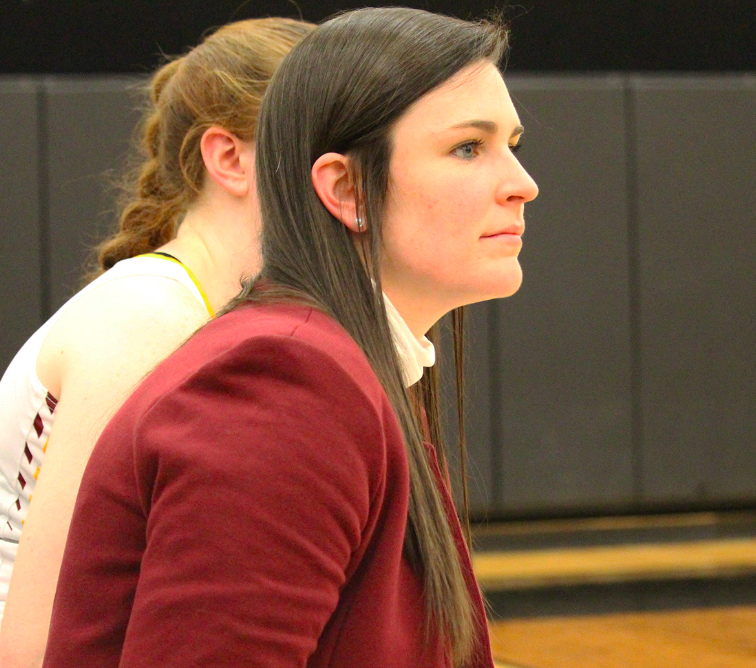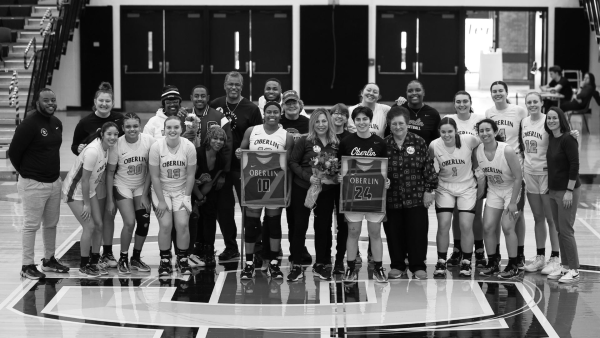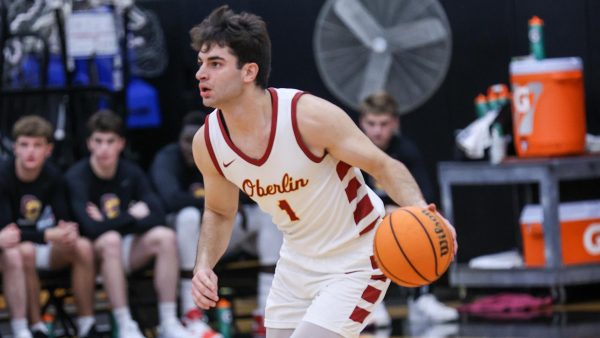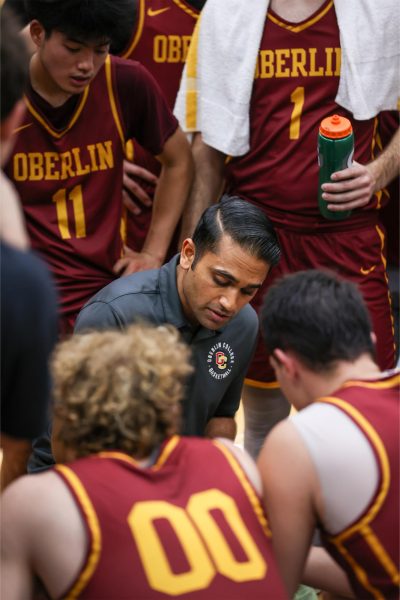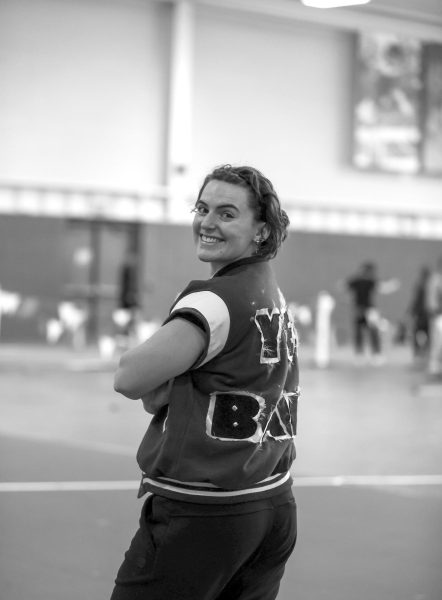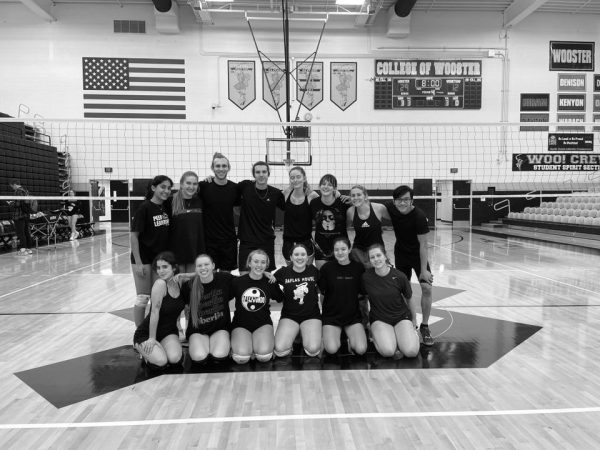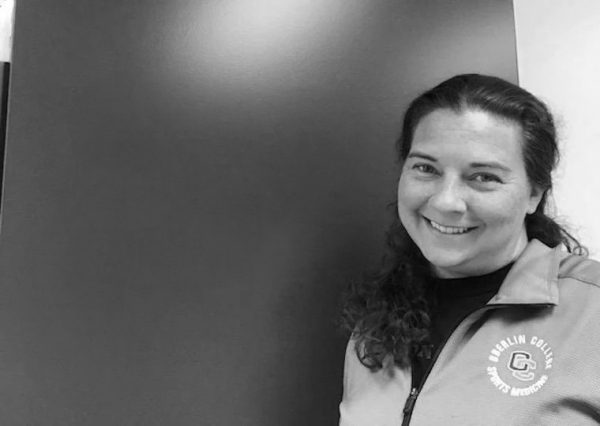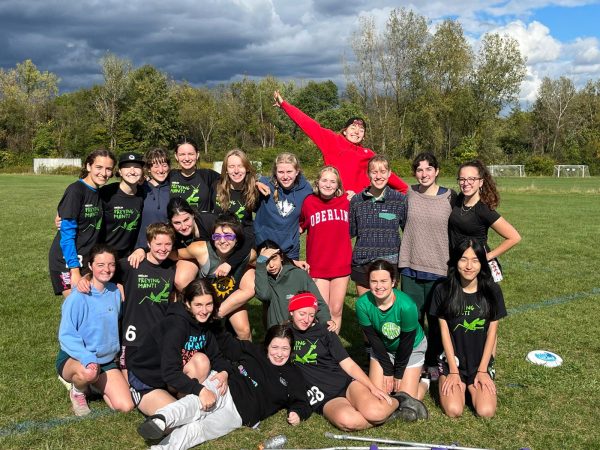In The Locker Room with Assistant Women’s Basketball Coach Maureen Hirt, Winner Of Tara VanDerveer Fellowship
Assistant Women’s Basketball Coach Maureen Hirt joined the Oberlin community in 2019 and has abundant experience coaching and supporting Division III athletics. She was chosen to be a Women’s Sport Foundation VanDerveer Fellow for 2020–21, which provides mentorship and training to aspiring women coaches. Outside of coaching at Oberlin College, Hirt is the co-Founder and owner of Ohio Champion Basketball, a basketball skills and performance training company in Cincinnati, Ohio.
What does this nomination mean to you?
Being nominated for the Tara VanDerveer Fellowship is incredibly special to me. I have had some amazing women coaches in my life, and I’m excited for the opportunity to continue to learn and get better as a coach, myself. There is no question that we need more women coaches in this world. It is so essential that female coaches get the support and same opportunities that men in coaching do.
The support that the Women in Sports Foundation gives to women coaches across all divisions and sports is unmatched. I’m so thankful for this opportunity and for the support from Oberlin and our athletic administration, especially [Oberlin’s] Athletic Director Natalie Winkelfoos and head Women’s Basketball coach Stephany Dunmyer.
How do you think you symbolize what this fellowship represents?
This recognition reiterates the unique opportunity I have to impact the lives of the student-athletes I coach. I think this fellowship is really a platform for women coaches to explore their passion for coaching and build a network of support. I think being a lifelong learner and understanding that you will never “arrive” but there are always ways to educate and improve yourself as a person and as a coach.
How have you empowered women in coaching positions?
I have helped them build their confidence and belief in themselves both on and off the court. I also want to give them someone who supports them unconditionally. Basketball is an avenue to help them become not only better players, but people who are going to change the world for the better.
What are some of the most important things you try to keep in mind when empowering women coaches to jumpstart their careers in coaching?
Something I try to live by is “throw yourself into everything.” There is no such thing as too big or too small of a task. If you put 100 percent of yourself into everything you do, your goals will come to fruition. I also think about how a coach is one of the most impactful positions you can have in someone’s life and there is no end date — the best coaches continue those relationships for life.
How did you become interested in coaching?
Relationship building has been something I’ve always been very passionate about and I think sports is an amazing avenue for that. I loved playing basketball from a very young age and always wanted it to be a huge part of my life. When I graduated from college, I took a step away and entered the business world for a bit but I soon realized that basketball was a part of my identity that I didn’t want to give that up. Now that I’m coaching, I’m at the point where it’s not only my full time job, but it’s also a part of who I am.
Who is your coach inspiration? Where does this want to empower women coaches stem from?
Pat Summitt has always been a huge inspiration for me. When you hear what she meant to her players and their development as people, it is truly touching. The connections she formed with her players is something that always keeps me going and pushes me to become better.
What are some of the challenges of coaching? It’s challenging getting athletes to be vulnerable and trust you. Vulnerability is such an instrumental part of coaching, but it’s a process and something you need to continually work at as a coach.
What are some of your strengths as a coach?
One strength I have is listening to my players and being approachable. Helping them work and push more than they ever thought possible is another area that I really take pride in. I hope players look back and see me as more than a coach — as a mentor and person that is in their corner for life.
How do you think this inspires the athletes that you coach?
The power of knowing you have someone who believes in you and has had similar experiences is really empowering. I think holding myself accountable and walking the walk is so important. I never want to be outworked by someone. So I try to model that effort, whether it’s in planning practices, spending hours watching film or talking them through adverse situations. I want to show up every day for my players and continue to improve myself for them.


